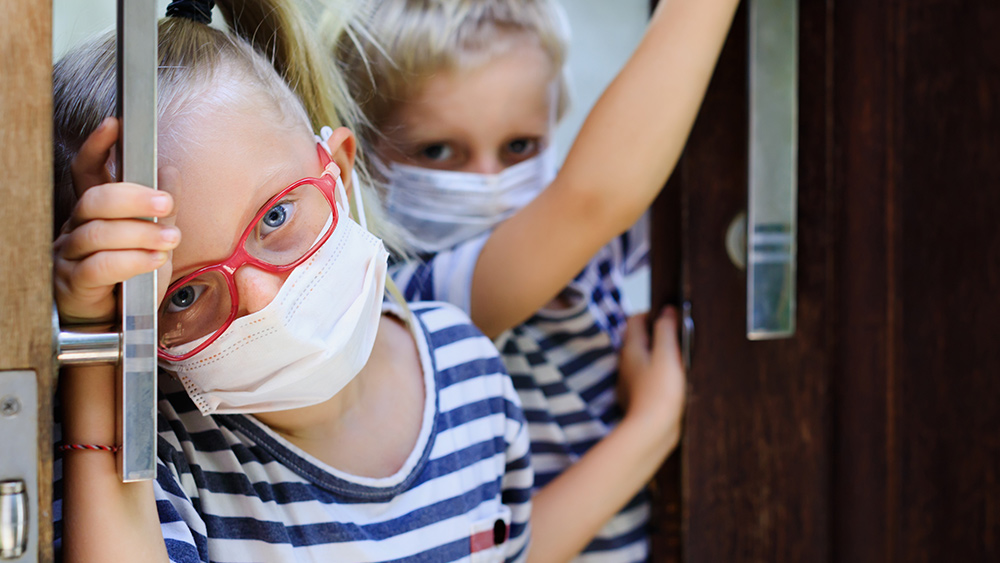 Parler
Parler Gab
Gab
Coronavirus lockdowns also drove young people to commit suicide
While younger children suffered from lowered IQs, older children were affected with mental problems that ended up with some taking their own lives. A June 2020 study published in QJM highlighted this phenomenon. It acknowledged the COVID-19 pandemic's "profound psychological and social effects … [that] will probably persist for months and years to come." (Related: Extended coronavirus lockdowns having severe negative effect on mental health of children – report.) True enough, the QJM study noted that COVID-19 survivors "may also be at elevated suicide risk." The study also pointed out that a spike in suicide rates may occur during and after the pandemic. It mentioned that suicide prevention hotlines in the U.S. experienced a huge increase of calls. The June 2020 study remarked that social distancing, which was espoused as one of the main approaches to fight COVID-19, played a big role in the increase of suicides. "Social isolation contributes to … psychiatric disorders and suicidal behavior," the study authors wrote. They added that the reliance on social distancing to address the pandemic was "troubling … from a suicide prevention perspective." The suicide of 15-year-old Kian Southway last year served as strong proof of the negative effects of COVID-19 lockdowns. Back in March 2020, the Welsh teen posted a Snapchat story that said "goodbye, everyone" before hanging himself. Despite his family's intervention and medical treatment, Kian died on March 31 – four days after his suicide attempt on March 27. Kian's mother Jolene described him: "[He] was bright, he was popular and he was a joy to teach." However, the British government ordered the closure of schools on March 18 – which took a toll on the outgoing teenager. Nine days after that, Kian posted the Snapchat message. Friends then alerted his younger sister Darcey about the message, which led to his parents rushing into the room to check on Kian. The teen was rushed to the hospital, but his condition worsened and he eventually died. During an inquest held at the Welsh town of Pontypridd, it was revealed that Kian had been missing school and his friends due to the lockdown. Coroner Thomas Artherton ruled Kian's death a suicide, saying: "It's tragic when a young person dies, but this is a greater tragedy when you take into account the circumstances of a young man with a loving family and close friends." Pandemic.news has more articles about the negative effects of lockdowns on children's mental health. Sources include: AllNewsPipeline.com MSN.com medRxiv.org Academic.OUP.com DailyMail.comDeborah Birx hid covid info from Trump, altered CDC guidelines without approval
By Ethan Huff // Share
Germany’s birth rate improbably falls by 11% in the first quarter of 2022
By Lance D Johnson // Share
By Mary Villareal // Share
Common signs and symptoms of magnesium deficiency
By Olivia Cook // Share
Governments continue to obscure COVID-19 vaccine data amid rising concerns over excess deaths
By patricklewis // Share
Tech giant Microsoft backs EXTINCTION with its support of carbon capture programs
By ramontomeydw // Share
Germany to resume arms exports to Israel despite repeated ceasefire violations
By isabelle // Share










